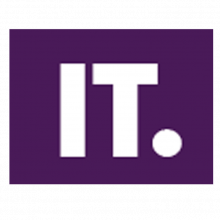
There are 7 Companies in Nairobi
that provide Disaster Recovery Services!
Looking at the IT industry in Nairobi, we can see by far the digitalization efforts done by Kenya in the last several years. Many tech events are present in this city, like Nairobi Tech Week, which is under the Digital Economy, aligning with the County Integrated Development Plan (CIDP) 2023-2027.
Discover Top IT Companies in Nairobi specialized in Disaster Recovery and other related services. Find the best IT service providers for your projects.
Disaster recovery services are like a safety net for your business's data and operations. They help you prepare for unexpected events like natural disasters or cyberattacks, ensuring that you can quickly recover and continue your business even in challenging circumstances.
More than 327 verified IT companies specialize in providing disaster recovery services. These companies have expertise in creating and implementing strategies to protect your data and IT infrastructure. Well-known IT companies offering disaster recovery services include IBM, Dell Technologies, and Hewlett Packard Enterprise (HPE).
Handpicked companies • No obligation to hire • 100% risk-free
Featured Companies in Nairobi
This month, the following Disaster Recovery companies managed to provide an outstanding service and support. It's worth taking a look.
Nelium Systems is a full-service digital agency helping brands grow through web design, SEO, branding, and smart marketing automation.
Reliable web hosting, SSL certificates, domain registration, VPS hosting, and IT expert support.
TechMax Africa, the premier IT solutions provider in East and Central Africa. We specialize in cybersecurity, cloud computing, AI, and IoT.
Explore Top Disaster Recovery Companies in Nairobi
We are an African Technology company that empowers organizations by focusing on the needs of the people they serve, enabling our customers to deliver.
We are information technology architects, helping businesses with custom web and mobile solutions, Data Managment and analytics.
Ambience Communications is a dynamic IT solutions company offering remote monitoring, comprehensive IT support, and network infrastructure solutions.
Committed to delivering IT training, cloud solutions, networking, and web development, we strive to provide quality solutions and customer service.
Filter Disaster Recovery Companies in Cities near Nairobi
Dive deeper and find the company you need close to you or, from a specific city you prefer. Some of the best companies come from smaller places
Find more Disaster Recovery companies around the world
TechBehemoths is the world's most advanced and user-friendly platform to match IT Companies with real clients without hustle.
The Current Developments in Nairobi's Tech Scene
Looking at the IT industry in Nairobi, we can see by far the digitalization efforts done by Kenya in the last several years. Many tech events are present in this city, like Nairobi Tech Week, which is under the Digital Economy, aligning with the County Integrated Development Plan (CIDP) 2023-2027.
One important aspect in this direction is the consistent growth of the number of startups, which, according to StartupBlink, has grown to 414 in 2024. Additionally, the contribution of the ICT sector of Kenya, including Nairobi as a tech hub, to the country’s GDP is approximately 9.24% in 2025, compared to 7% in 2022.
While some call Nairobi the Silicon Savannah, the city still has a lot of room for growth in terms of digitalization and IT capabilities. The most recent case of a tech giant that hired the local workforce is OpenAI. According to Time Magazine, the tech giant cleaned up its AI tool of toxicity using Kenyans who provided their services for less than $2/hour.
Nonetheless, the salary of a software developer in Nairobi starts at $1.39 per hour and $5,354/year, according to Payscale.
Considering the salary range and the OpenAI case, Nairobi is attractive for international IT companies that seek a cheap workforce to outsource their Information and Technology activities in Africa.
The list of notable companies located in Nairobi includes Asus, Cisco Systems, Intel, IBM, and Huawei, according to Wikipedia data as of November 2023.
What is Disaster Recovery and what are its benefits for your projects?
Disaster recovery services are like a safety net for your business's data and operations. They help you prepare for unexpected events like natural disasters or cyberattacks, ensuring that you can quickly recover and continue your business even in challenging circumstances.
More than 327 verified IT companies specialize in providing disaster recovery services. These companies have expertise in creating and implementing strategies to protect your data and IT infrastructure. Well-known IT companies offering disaster recovery services include IBM, Dell Technologies, and Hewlett Packard Enterprise (HPE).
Disaster recovery service providers use a range of tools and technologies to safeguard data and ensure business continuity. These include backup and recovery software, cloud storage solutions, virtualization technologies, and monitoring systems. Popular cloud platforms like Amazon Web Services (AWS) and Microsoft Azure also play a crucial role in disaster recovery.
Disaster recovery services are typically included in a suite of services that also address business continuity and risk management. Other related services may include:
-
Business Continuity Planning: Developing comprehensive strategies to keep your business running during disruptions.
-
Cybersecurity Services: Protecting against cyber threats and data breaches, which are often a cause of disasters.
-
Risk Assessment: Identifying vulnerabilities and potential threats to your business.
-
Emergency Response Planning: Preparing for immediate actions in the event of a disaster.
-
Data Protection Services: Implementing data encryption, access controls, and data loss prevention measures.
Selecting the right IT company for disaster recovery services requires evaluating their experience, the comprehensiveness of their disaster recovery solutions, and their responsiveness in case of an emergency. Look for providers who offer tailored disaster recovery plans that align with your specific business needs and recovery time objectives (RTOs).
Disaster recovery service providers are essential for various projects and scenarios, including:
-
Data Centers: Ensuring the continuity of critical data center operations.
-
E-commerce Websites: Protecting online businesses from downtime due to technical issues or cyberattacks.
-
Healthcare Systems: Safeguarding patient records and medical systems to ensure uninterrupted care.
-
Financial Institutions: Meeting regulatory requirements for data protection and business continuity.
-
Manufacturing Plants: Minimizing production disruptions caused by equipment failures or supply chain interruptions.
Disaster recovery services are crucial for companies of all sizes and industries, including:
-
Small Businesses: Protecting essential data and ensuring minimal downtime.
-
Enterprises: Managing complex IT environments and maintaining regulatory compliance.
-
Healthcare Providers: Safeguarding patient records and critical medical systems.
-
Financial Institutions: Ensuring uninterrupted banking and financial services.
-
Government Organizations: Maintaining public services and data integrity during emergencies.
Disaster recovery is not a one-size-fits-all solution. It's essential to conduct a risk assessment and work with a disaster recovery service provider to develop a tailored plan that matches your business's specific needs and budget. Regular testing and updates of your disaster recovery plan are also crucial to ensure it remains effective as your business evolves.






